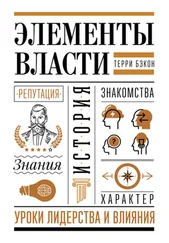R. Baumeister, L. Zhang and K. Vohs . Gossip as Cultural Learning // Review of General Psychology. 2004 (8). P. 111–121.
Roger Wilkes . Scandal: A Scurrilous History of Gossip. L.: Atlantic Books, 2002.
Daniel J. Solove . The Future of Reputation. New Haven, CT: Yale University Press, 2007.
M. Feinberg, R. Willer and M. Schultze . Gossip and Ostracism Promote Cooperation in Groups // Psychological Science. 2014 (25). № 3. P. 656–664.
Kent Flannery and Joyce Marcus . The Creation of Inequality. Cambridge, MA: Harvard University Press, 2012.
C. A. Langner and Dacher Keltner . Social Power and Emotional Experience: Actor and Partner Effects Within Dyadic Interactions // Journal of Experimental Social Psychology. 2008 (44). P. 848–856; Cameron Anderson and Jennifer Berdahl . The Experience of Power: Examining the Effects of Power on Approach and Inhibition Tendencies // Journal of Personality and Social Psychology. 2002 (83). P. 1362–1377.
Cameron Anderson, Oliver P. John and Dacher Keltner . The Personal Sense of Power: An Interactionist Approach // Journal of Personality. 2012 (80). P. 313–344.
A. Guinote . Power and Goal Pursuit // Personality and Social Psychology Bulletin. 2007 (33). P. 1076–1087.
Cameron Anderson and Adam Galinsky . Power, Optimism, and Risk-Taking // European Journal of Social Psychology. 2006 (36). P. 511–536.
В одном из исследований на эту тему группа историков, независимо друг от друга оценивавших успех и наследие президентов, включила Линкольна в число первой четверки. Другая группа историков на основе изучения писем, выступлений и биографий президентов оценивала качества из «большой пятерки». Корреляция этих двух наборов оценок показывает, что американские президенты, оставившие наибольший след в истории страны, были ориентированы на общее благо (принцип № 5): они отличались энтузиазмом, добротой, сфокусированностью, открытостью к идеям и чувствам других людей, а также спокойствием. Stephen J. Rubenzer and Thomas Faschingbauer . Personality, Character, and Leadership in the White House: Psychologists Assess the Presidents. Washington, DC: Brassey’s, 2004.
Цит. в кн.: Doris Kearns Goodwin . Team of Rivals. N.Y.: Simon & Schuster, 2012. P. 289.
Dacher Keltner and Ann M. Kring . Emotion, Social Function, and Psychopathology // Review of General Psychology. 1998 (2). P. 320–342.
U. Dimberg and A. Ohman . Behold the Wrath: Psychophysiological Responses to Facial Stimuli // Motivation and Emotion. 1996 (20). № 2. 149–182.
Marc A. Brackett, Susan E. Rivers and Peter Salovey . Emotional Intelligence: Implications for Personal, Social, Academic, and Workplace Success // Social and Personality Psychology Compass. 2011 (5). № 1. P. 88–103; J. D. Mayer, S. G. Barsade and R. D. Roberts . Human Abilities: Emotional Intelligence // Annual Review of Psychology. 2008 (59). P. 507–536.
M. D. Lieberman et al. Putting Feelings Into Words: Affect Labeling Disrupts Amygdala Activity in Response to Affective Stimuli // Psychological Science. 2007 (18). № 5. P. 421–428.
Anita W. Woolley et al. Evidence for a Collective Intelligence Factor in the Performance of Human Groups // Science. 2010. Sept. 30. doi:10.1126/ science.1193147.
The CS Gender 3000: Women in Senior Management // Credit Suisse, September 2014.
Stéphane Cфtй and C. T. H. Miners . Emotional Intelligence, Cognitive Intelligence, and Job Performance // Administrative Science Quarterly. 2012 (51). P. 1–28.
Превосходный обзор новейшей литературы об эмоциональном интеллекте на рабочем месте: Stйphane Cфtй . Emotional Intelligence in Organizations // Review of Organizational Psychology. 2014 (1). P. 459–488.
Вот еще несколько научно обоснованных советов по развитию эмпатии. Мы можем улучшить свое понимание чувств других людей, изучая выражения лица, интонации и прикосновения – то есть средства передачи эмоций. Очень важно задавать открытые вопросы и слушать, не высказывая суждений. Когда родители дают себе труд благожелательно расспрашивать ребенка о его чувствах – особенно в разгар конфликта с братом или сестрой, – уровень эмпатии у детей повышается. Judy Dunn . The Development of Individual Differences in Understanding Emotion and Mind: Antecedents and Sequelae // Feelings and Emotions: The Amsterdam Symposium, eds. Nico H. Frij da, Antony S. R. Manstead and Agneta Fischer. N.Y.: Cambridge University Press, 2004. Чтение художественной литературы также повышает уровень эмпатии. K. Oatley, J. B. Peterson . Exploring the Link Between Reading Fiction and Empathy: Ruling Out Individual Differences and Examining Outcomes // Communications: The European Journal of Communication. 2009 (34). P. 407–428.
Обзор исследований прикосновений: Dacher Keltner . Born to Be Good: The Science of a Meaningful Life. N. Y.: W. W. Norton, 2009.
Karen Morberg. The Oxytocin Factor. Cambridge, UK: Cambridge University Press, 2003.
Edmund Rolls . Emotions Explained. Oxford: Oxford University Press, 2005.
Dacher Keltner. Born to Be Good, ch. 9.
D. Francis and M. J. Meaney . Maternal Care and the Development of Stress Responses // Development. 1999 (9). P. 28–34.
J. A. Coan, H. S. Schaefer and R. J. Davidson . Lending a Hand: Social Regulation of the Neural Response to Threat // Psychological Science. 2006 (17). P. 1032–1039.
Larry Gray, Lisa Watt and Elliott M. Blass . Skin-to-Skin Contact Is Analgesic in Healthy Newborns // Pediatrics. 2000 (105). P. 14–20.
Читать дальше
Конец ознакомительного отрывка
Купить книгу












